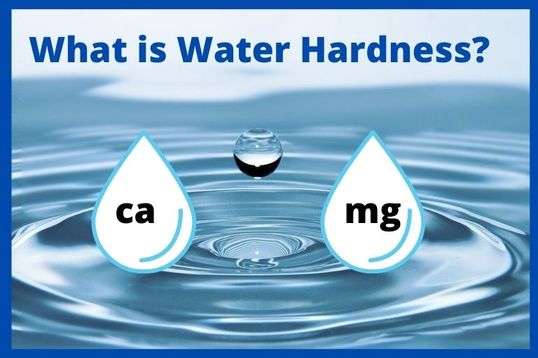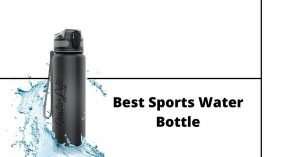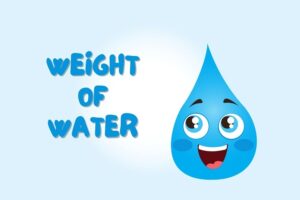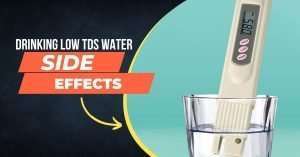What is Water Hardness?
Water hardness is the property of water that prevents lather formation with soap and increases the boiling point of water. The main component of hardness is calcium and magnesium. The ions responsible for hardness are mainly bicarbonate, carbonate, sulphate, chloride, nitrate and silicate.
Hardness in water is caused by the presence of calcium and magnesium salts. The natural water hardness will vary considerably depending on the source of the water. Some natural waters are very soft, whereas others ( e.g., limestone formations) may have several hundred ppm hardness.
Water hardness is a two type of temporary & permanent hardness. If it is by bicarbonate and carbonate salts, then the hardness is said to be temporary. It can only be removed by boiling water. The permanent hardness removal is complicated.
Types of Water Hardness:
Two types of water hardness present in water. 1) Calcium Hardness 2) Magnesium Hardness.
Calcium Hardness:
Calcium is the most abundant substance in natural water. Due to the high amount present in the rock, it contaminates the water from there. The amount of natural water usually varies from 10 to 100 mg / L, depending on the type of rock. Waste and industrial waste disposal is also an important source of calcium.
It has a high concentration of adsorbing on the soil particles it makes; therefore, cation exchange equilibrium and other cations are present. It greatly affects the density of water.
Natural softening of water occurs due to exchange by sodium ions. Due to the precipitation of Caco3, the concentration of calcium decreases to a higher pH.
Since it has no dangerous effects on human health, calcium is actually an important nutrient needed by animals. Concentrations up to 1800 mg / I have been found not to impair any physiological response in humans.
The importance of calcium concentration lies in the reality of its difficulty in household and industrial use. High concentration in washing, smuggling and bathing is not recommended due to suppression of lather formation with soap. Boiler scale formation is caused by high calcium with magnesium.
The small concentration of calcium is beneficial in reducing pipe corrosion due to forming a thin layer of scale. Various substances such as lead, zinc, aluminium, sodium magnesium, and potassium chloride have been found to prevent toxic solutions.
Magnesium Hardness:
Magnesium also finds in all types of natural water with calcium, but its concentration is usually lower than that of calcium. The main sources of natural water are various types of stone sewers and industrial wastes and important contributions of magnesium like calcium. The concentration of magnesium also depends on the balance of exchange and the presence of sodium-like ions.
High concentration with sulfate work for humans. Concentrations up to 500 mg/liter provide an unpleasant taste of water, making it unpleasant. Magnesium adds hardness to the water and creates problems with the formation of calcium boiler scales.
Water Hardness Effects:
Water Hardness Effects on humans body:
Hardness cannot have any adverse effect on health. However, some evidence has been provided to point out its role in heart disease. Hard water is not good for wash hair, body and laundry. It is not suitable for domestic use.
Water Hardness & the presence of chlorine in your water are among the most common causes of hair loss, dry skin and a range of other skin problem conditions. The solution is to filter out harmful pollutants before they reach your body. The water softener using is the best solution for removing water hardness.
Water Hardness Effects on Industrial:
In the industrial view, hardness is a major issue in plant operation. Boilers and other heat exchange equipment working life reduce due to the formation of heat resistant insulating scales.
In industry, high hardness is the principal source of scale formation in various equipment where heat transfer involves: Boiler feedwater heaters, feed lines and economizers. Boilers also will be heavily scaled due to the precipitation of calcium & magnesium salt unless the boilers are properly treated. In a cooling water system, the scale will develop in heat exchange equipment, engine jackets, piping, and general, wherever water circulates and is exposed to a temperature increase.
Hard water has some advantage in some situations. This prevents corrosion of the pipe by forming a thin layer and reduces the entry of heavy metals into the water from the pipe.
How to Test Water Hardness:
Reagents :
Buffer Solution: Dissolve 1.179g. the sodium salt of EDTA dihydrate and 644mg.MgCl2.6H2O in 50ml distilled water. Add this solution to 16.9g of ammonium chloride (NH4Cl) and 143ml liquid ammonia. Dilute it with distilled water to one litre. Store in a tightly plugged container.
Eriochrome Black – T indicator: Dissolve 0.5g. of E.B.T. in 100 ml of methyl alcohol. Keep it in the amber coloured bottle.
Standard calcium chloride / Calcium carbonate solution : Weigh 1.0000g. of CaCO3 or 1.470g. of calcium (CaCl2. 2H2O) and dissolve it in Approx. 2-5ml of conc. Hydrochloric acid, transfer it to a one-litre volumetric flask and dilute up to the mark with distilled water.
Standard E.D.T.A. solution ( 0.01M ) / 0.02N: Dissolve 3.723g. of AR – grade Na2EDTA.2H2O in distilled water and dilute to one litre. Standardize against Standard CaCl2.2H2O / CaCO3 solution.
Inhibitor for Heavy metals: Dissolve 5.0 g sodium sulfide (Na2S.9H2O) in 100 ml Distilled water.
Procedure :
Take 25ml sample to add 1ml ammonia buffer solution in 250ml conical flask, and add 2 drops E.B.T. indicator. Titrate with E.D.T.A. Solution until the reddish colour converts to blue colour.
How to calculate water Hardness:
Water Hardness as CaCO3 (ppm) = (TV * Normality of EDTA * 1000 * 50)/ Sample volume
Drinking Water Hardness Limit:
As per “Burea of Indian Standards” drinking water standard water hardness maximum limit 200 mg/l. If your water hardness level 40-50 mg/l, you feel a sweet taste of water.
If your drinking water hardness level is high, the only solution is to use an RO water purifier to remove it.
Hardness removing process:
Hardness can be removed by external treatment soda softening, ion exchange and reverse osmosis processes.
The water softener is the best solution to remove hardness from bathwater in your bathroom and RO water purifier using drinking purpose.




